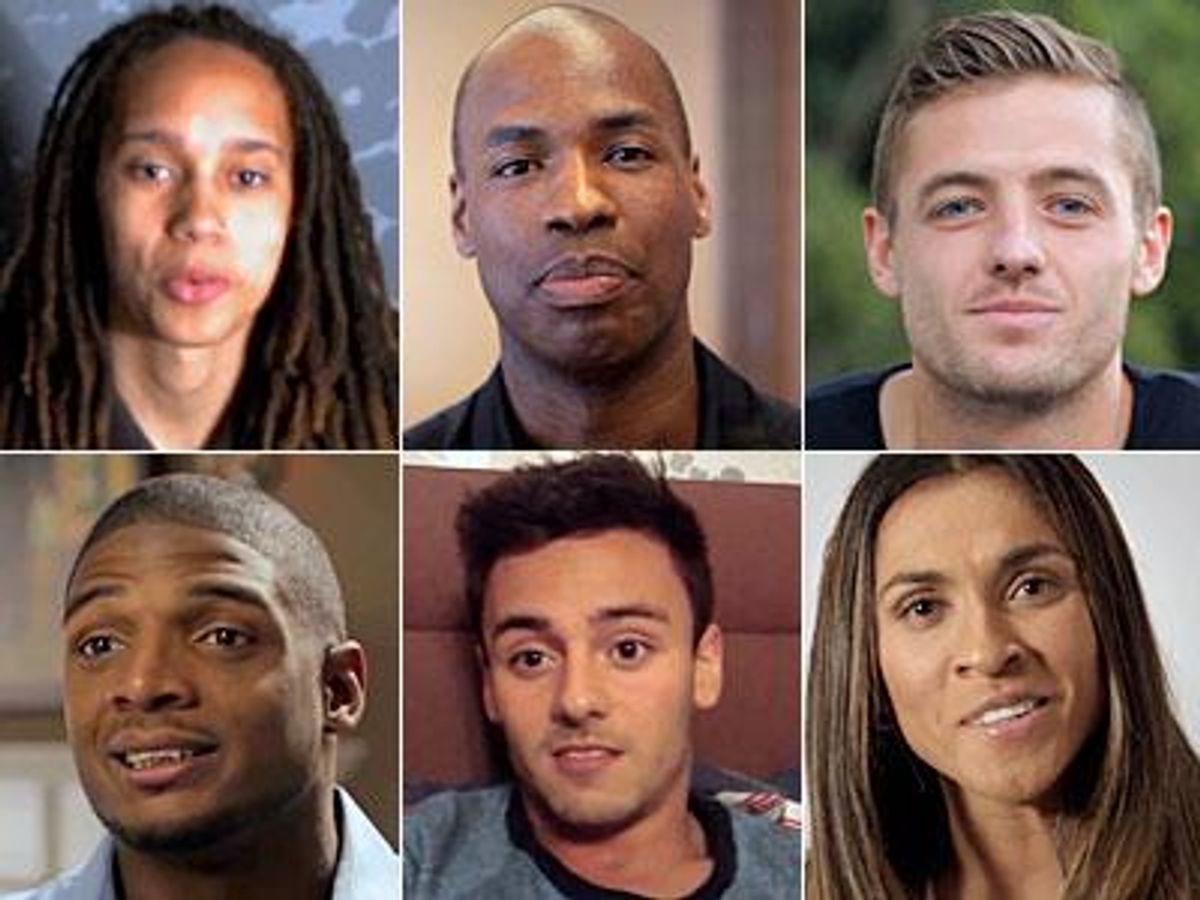Once Jason Collins hit 16, he knew he was at least different from his fellow athletes. It wasn't until 2011, however, when Collins finally was able to muster the courage to say "I'm gay" to another human. In this case, it was an NBA trainer who had done an It Gets Better video the previous year.
Eventually he began to share his truth with close friends and family, but he still felt stifled by the "CIA" act he had to put on when he played with teammates or was traded to a new team. Even after changing his jersey number to 98 to mark the year of the death of gay college student Matthew Shepard and the launch of the Trevor Project, Collins said he still felt like he was hiding.
"After 12 years in the NBA, I just got tired of it," he said.
That's when he finally decided to share his story in a cover story in Sports Illustrated. And now that he has been scooped up by the Brooklyn Nets, Collins is free to live his life and be out in the process.
He advised young athletes who may still be uncertain about coming out, "You don't have to fit a stereotype. You can be your own person. It's fun to break a stereotype, it's fun to challenge people's misconceptions about what it means to be gay."
Collins added, "If someone has a problem with [your sexuality], that's on them. It's not on you."
Collins also appears in a video as part of YouTube's #ProudToPlay initiative, highlighting the vast achievements of LGBT athletes, especially in recent years. The video stresses the ways that sport brings people together, showing the late Nelson Mandela addressing the World Cup in South Africa, saying, "Sport can create hope where once there was only despair."
Robbie Rogers, Michael Sam, Jason Collins, Meagan Rapinoe, Tom Daley, Darren Young, Belle Brockhoff, Fallon Fox, Caitlin Cahow, John Amaechi, and Layshia Clarendon appear as well, among other prominent LGBT athletes and supporters.
"Being gay in sports doesn't change the way you play the game," says Brittney Griner in the video.
The video release coincides with the World Cup in Brazil this summer, as well as LGBT Pride month.
"As more people come forward and are proud of who they are, and compete and do well, I think that will really change everything," Rogers said in a statement Tuesday. "I'm proud to play because I know I'm helping people. I know that there is young gay men and women out there, athletes who now have someone they can look up to in the sports world."


















































































